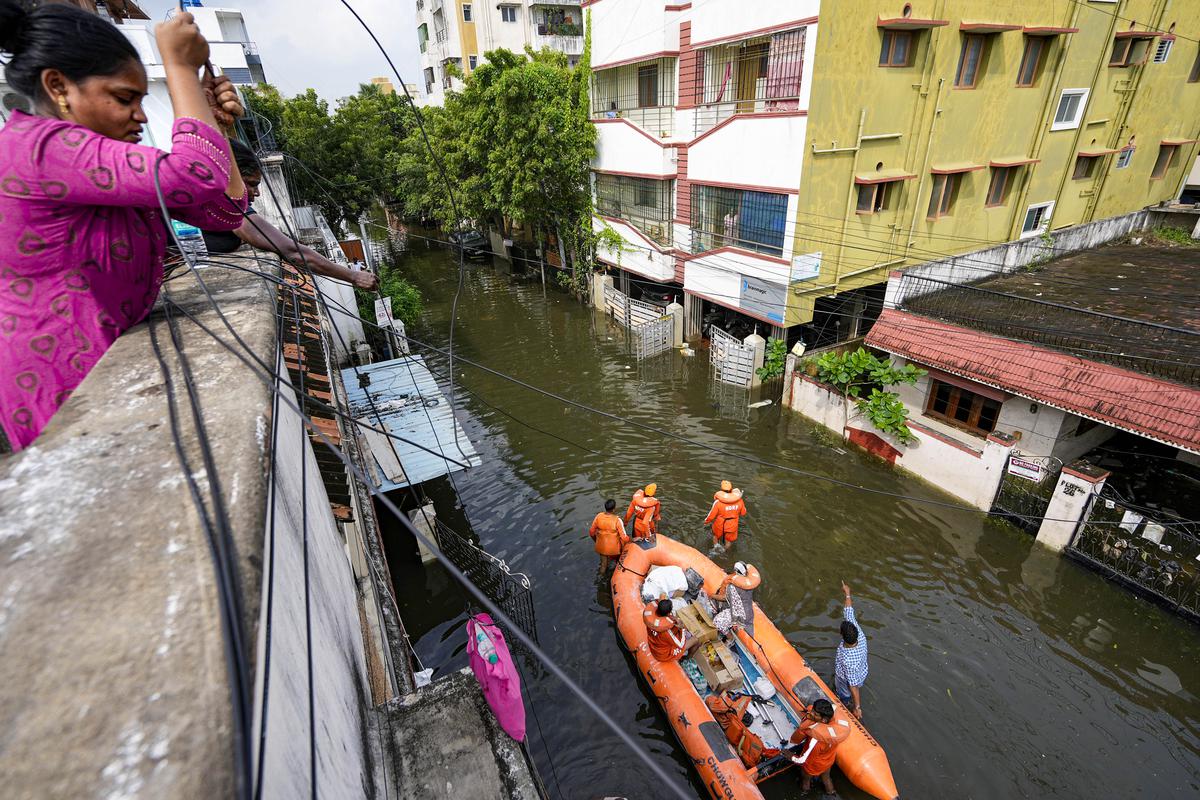From UPSC perspective, the following things are important :
Prelims level: Cyclone Michuang
Mains level: decision-making during a crisis

Central idea
Dr. Mani Sivasubramanian emphasizes the long-lasting impact of decisions made after Cyclone Michuang in Chennai, particularly regarding electricity cutoffs. The central idea revolves around the need for accountability in decision-making during crises, highlighting the delicate balance between safety measures and potential hazards for vulnerable populations, such as the elderly. The way forward involves a hierarchical approach, periodic reviews, and fixing responsibility for sub-optimal decisions.
Key Highlights:
- Dr. Mani Sivasubramanian, a heart surgeon, author, and social entrepreneur, discusses the long-lasting impact of decisions made after Cyclone Michuang in Chennai.
- Emphasizes the importance of accountability for decisions with visible and hidden consequences.
- Raises concerns about the practice of prolonged electricity cutoffs after a natural disaster, especially for vulnerable populations like the elderly.
Key Challenges:
- Balancing the need for safety measures, such as electricity cutoffs during cyclones, with potential hazards like accidents and security concerns.
- The complexity of decision-making during a crisis, requiring a dynamic and evolving approach.
- Striking a balance between conservative choices and potential complications due to inaction.

Key Terms:
- Decision accountability
- Electricity cutoff
- Vulnerable populations
- Dynamic balance
- Cataclysmic disaster
- Intellectual and analytical judgment
Key Phrases for good marks in mains:
- “Consequences of choices should be accounted for.”
- “Power disruption poses significant hazards, especially for the elderly.”
- “Decision-making in a crisis is an extreme test of judgment and personal strength.”
- “Potential cost of mistakes looms large in a decision-maker’s mind.”
Key Quotes:
- “There is no objectively ‘safe’ choice; it is a constantly evolving, dynamic balance.”
- “A bureaucrat should justify and document decisions in real-time for review.”
- “Complex decision-making should not become a contest of cheap populism.”
Key Statements:
- Decision-makers should justify and document choices in real-time.
- Accountability is crucial, especially when decisions impact millions.
- Calls for a hierarchy-based approach in decision-making during crises.
Key Examples and References:
- Mentions the 2015 floods in Chennai as a reference to the consequences of decision-making during natural disasters.
Key Facts:
- In 2021, Tamil Nadu had 13.8 crore people over the age of 60 years.
- Chennai metropolitan area’s population is estimated to be over 12 million.
Key Data:
- 500,000 people in Chennai are above 60 years old, and over 50,000 are aged 80 or above.
Critical Analysis:
- Acknowledges the complexity of decision-making during a natural disaster.
- Emphasizes the need for a balance between safety measures and potential hazards.
- Advocates for accountability and periodic reviews of decisions.
Way Forward:
- Suggests a hierarchy-based approach with scaled levels of responsibility.
- Proposes involvement of more than one person in major decision-making.
- Calls for periodic reviews by an oversight team to challenge and reverse questionable choices.
- Highlights the importance of fixing responsibility for sub-optimal decisions.
Get an IAS/IPS ranker as your 1: 1 personal mentor for UPSC 2024
